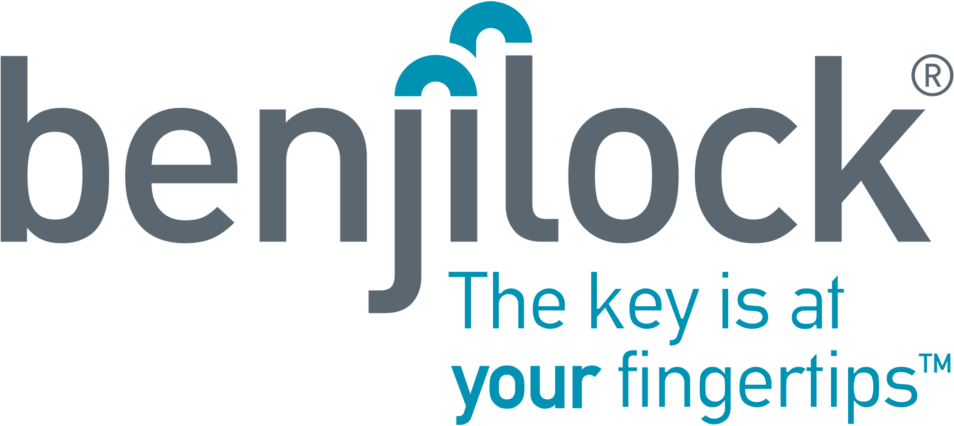 If you travel as often as our team does, you know there are a number of issues that pop up regularly. For example, one day you could be working in a hotel office and the next you’re sitting at a table in a coffee bar. But, one thing always remains the same – how do you secure your computer? There are Kensington-style locks, but so many laptops today don’t have a lock port (including the one I’m using to write this). This is the space that LapLok is looking to fill.
If you travel as often as our team does, you know there are a number of issues that pop up regularly. For example, one day you could be working in a hotel office and the next you’re sitting at a table in a coffee bar. But, one thing always remains the same – how do you secure your computer? There are Kensington-style locks, but so many laptops today don’t have a lock port (including the one I’m using to write this). This is the space that LapLok is looking to fill.
What is LapLok?
LapLok is a near pocket-sized security system for anyone who uses their laptop out in public. This could be writers who need to be seen writing at Starbucks or travelers trying to get work done at the airport. Wherever you are, so long as you’ve got a flat surface, you can secure your laptop.
The device works fairly simply. You attach a mounting bracket to the back of your laptop, ideally before you go out. The bracket goes on with a strong 3M adhesive that will hold it in place in nearly all situations. Then, when you’re ready to lock the computer, you attach the base to the bracket and clamp it to the table. Once locked in place, it will only open with the PIN you’ve programmed.
In addition to the base locking system, there are other security accessories that can be added. The most prominent add-on that we saw was to also secure your purse or laptop bag to the underside of the table. Now, with a single device, you can deter the casual grab-and-go thief.
But, what happens if someone does grab the laptop and tries to get away? The LapLok has a built-in alarm that sounds. The alarm is loud and annoying enough that they didn’t want to demonstrate it at the show. Obviously, the idea of the alarm is to deter the theft, but also to alert everyone around in the event it happens.
Who is LapLok for?
With the increase in work-from-home and work-from-anywhere mentality, many people are working while out of the office. Because of this, companies have been issuing laptops to employees who previously may not have had one. So, with working from anywhere growing in popularity, the LapLok is really for anyone.
The most common use case is for people who travel a lot. Travelers often find themselves working in strange places. But, these days, many of us do. Even around town, I find myself working from restaurants and coffee shops – even gaming centers. Being able to secure your laptop to go to the bathroom is a great ability, but securing it while you’re sitting there is just as important – possibly more important.
Summary
LapLok is in a late prototype phase and TechLok, the company behind the product, is taking pre-orders now. The expected retail price of the device is $80, but in pre-order, you can get the whole productivity bundle for $7, though quantities are limited. To learn more or pre-order your own, head to the company’s website.
Interview by Todd Cochrane of Geek News Central.
Get $5 to protect your credit card information online with Privacy.
Amazon Prime gives you more than just free shipping. Get free music, TV shows, movies, videogames and more.
The most flexible tools for podcasting. Get a 30 day free trial of storage and statistics.
Podcast: Play in new window | Download
Subscribe: Apple Podcasts | RSS | More

 As we get older, it gets more difficult to live on our own. In addition to actual hazards, family concerns can make it even more difficult – for us and our families. Making sure our siblings and children are comfortable and safe can add stress to someone trying to live their lives as normally as possible. Fortunately, thanks to
As we get older, it gets more difficult to live on our own. In addition to actual hazards, family concerns can make it even more difficult – for us and our families. Making sure our siblings and children are comfortable and safe can add stress to someone trying to live their lives as normally as possible. Fortunately, thanks to  Every aspect of our lives is getting smarter. From our cars to our lightbulbs, we have the ability to turn things on and off, lock and unlock devices, and open and close our doors. One company that is getting serious about connecting one of the most high-profile aspects of our homes, our door locks, is
Every aspect of our lives is getting smarter. From our cars to our lightbulbs, we have the ability to turn things on and off, lock and unlock devices, and open and close our doors. One company that is getting serious about connecting one of the most high-profile aspects of our homes, our door locks, is  Do you ever feel like you’re carrying around a bag of bricks when you have to bring your house keys, car keys, and wallet with you everywhere you go? What about all of the passwords that you’re required to remember? And worst of all, they’re constantly changing because your company wants you to change it every 45 days. And they’re getting longer! How in the world are we supposed to keep track of all of these things?
Do you ever feel like you’re carrying around a bag of bricks when you have to bring your house keys, car keys, and wallet with you everywhere you go? What about all of the passwords that you’re required to remember? And worst of all, they’re constantly changing because your company wants you to change it every 45 days. And they’re getting longer! How in the world are we supposed to keep track of all of these things?  What if you could protect your belongings with the touch of a finger? It would mean not having to carry a key at the gym or pool. It would mean not having to copy your house key every time you have guests over.
What if you could protect your belongings with the touch of a finger? It would mean not having to carry a key at the gym or pool. It would mean not having to copy your house key every time you have guests over.  Securing the Internet of Things is a complicated task. We’ve seen small and large companies, as well as small and large devices, get hacked. Sometimes the hacks happen on the cloud side, but too often they come from the device side. Not too long ago we covered a scenario where DVRs, cameras, and more, were all being used as part of a botnet to create attacks against other networks.
Securing the Internet of Things is a complicated task. We’ve seen small and large companies, as well as small and large devices, get hacked. Sometimes the hacks happen on the cloud side, but too often they come from the device side. Not too long ago we covered a scenario where DVRs, cameras, and more, were all being used as part of a botnet to create attacks against other networks.  Everyday life is so busy. There are so many things, every day, that we are accountable for. We’re so busy running around all over the place and trying to keep up with everything. It’s so easy to get lost in our routines. I, for one, seem to constantly be misplacing even the most basic items… my hairbrush, my wallet, my keys. And don’t even get me started on how many passwords I have, all with different criteria. This site needs a minimum of 8 characters, another one needs a mixture of special characters while yet another one wants no special characters at all. So confusing and frustrating. That’s why this interview with Chris from
Everyday life is so busy. There are so many things, every day, that we are accountable for. We’re so busy running around all over the place and trying to keep up with everything. It’s so easy to get lost in our routines. I, for one, seem to constantly be misplacing even the most basic items… my hairbrush, my wallet, my keys. And don’t even get me started on how many passwords I have, all with different criteria. This site needs a minimum of 8 characters, another one needs a mixture of special characters while yet another one wants no special characters at all. So confusing and frustrating. That’s why this interview with Chris from  Privacy for certain things is important these days. Who wants to have a secure place to store things that screams out that there is something of value inside it? Scott from
Privacy for certain things is important these days. Who wants to have a secure place to store things that screams out that there is something of value inside it? Scott from  In the past few weeks, the value of several cryptocurrencies, including Bitcoin and Ethereum, has skyrocketed. This change has caused a lot of new people to get involved in investing in these currencies in an attempt to make some quick cash. However, unlike owning a few shares of Microsoft or Apple, there are inherent insecurities in owning cryptocurrencies. Most notably, having a public, or hot, wallet on an exchange holding your coins, is just asking for trouble. In fact, billions of dollars worth of cryptocurrency have been stolen in recent years. However,
In the past few weeks, the value of several cryptocurrencies, including Bitcoin and Ethereum, has skyrocketed. This change has caused a lot of new people to get involved in investing in these currencies in an attempt to make some quick cash. However, unlike owning a few shares of Microsoft or Apple, there are inherent insecurities in owning cryptocurrencies. Most notably, having a public, or hot, wallet on an exchange holding your coins, is just asking for trouble. In fact, billions of dollars worth of cryptocurrency have been stolen in recent years. However,